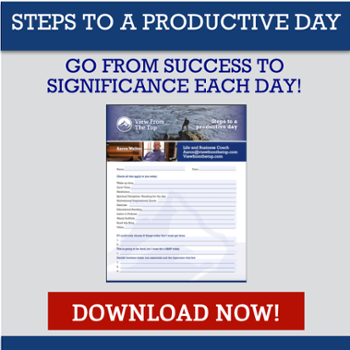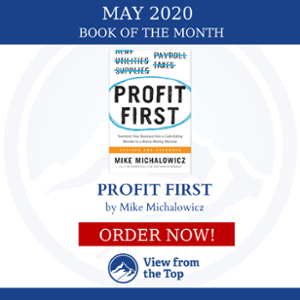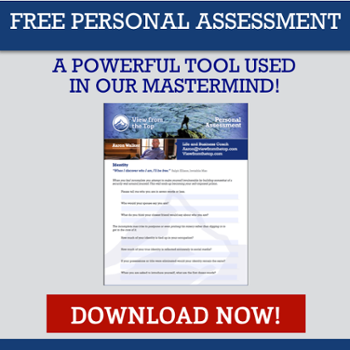
I often hear from many professionals who experience constant frustrations and anxiety in their workplaces. While a problem may have complexities, these issues often find their roots in relationships where someone has either destroyed trust or never established it in the first place.
Stephen M. R. Covey, author of The Speed of Trust, wants professionals to understand trust’s great impact on developing relationships in businesses and organizations. He writes of a number of behaviors that prevent misunderstandings or help to solve conflict when it arises.
If you’d like to have the support of other goal-focused professionals to help you establish trust in your relationships and your workplace, visit our website or apply to join one of our mastermind groups online.
Building Trust through Conflict
Settings with no trust see high employment turnover, employee burnout, inconsistent implementation, unclear management structure, and conflicting organizational values. Whether employees walk on eggshells or charge through the coop, unhealthy conflict and a lack of trust create an environment of instability. However, the problem doesn’t stop there: a toxic workplace culture also impairs the mission and productivity of the organization.
While you can’t change another persons’ capacity for trustworthiness, you do have the ability to improve your own through your behavior toward others. Every conflict provides an opportunity to strengthen weaknesses and build trust in relationships. If you can view conflict through this lens, you can address the cause of the issue and further establish trust within your workplace.
One situation I heard about involved a new supervisor mistakenly interpreting an employee’s poor word choice as insubordination. When the employee got wind that his boss was unhappy with him, he realized his mistake and scheduled a private meeting with the supervisor. The employee apologized, not knowing the outcome. As it turned out, the supervisor offered a fresh start and apologized for his misunderstanding, saying the employee’s honesty and willingness to address the issue revealed his trustworthiness.
At any point during that conflict, either the supervisor or the employee could have made the situation worse. Instead, each decided to take steps toward the other and offer reconciliation. The outcome established trust between the two of them. In the years since they developed a solid relationship with a rapport of healthy conversations.
Whatever your position within your organization or company, you can enhance the trust of your employees, colleagues, or supervisors with the following three principles.
3 Behaviors Professionals Can Use to Build Trust with Other Professionals
Some of the best trust-building characteristics are simple in ideals, but they can be difficult to practice. Remember these three:
1. Say What You Mean, and Mean What You Say
It probably sounds like a no-brainer, but it’s easier said than always done. Telling the truth (with kindness and grace) goes a long way in building trust in relationships. Don’t put spins on situations or throw coworkers under the bus. The people around you ought to see honesty as a consistent characteristic through your speech.
But don’t be all talk. Make sure your values consistently match your words and actions.
When you make commitments, keep them. Show up when you say you will. Complete assignments you take on. People rely on your word, so keep that in mind before you back out of commitments and engagements without notice.
2. Work on Conflict Resolution Skills
Anyone who works with other people—which means everyone, at some point—will find it invaluable to learn communication skills. Interpersonal communication involves more than becoming a well-spoken individual in one-on-one settings. One of the most important aspects is managing conflict.
As I mentioned above, conflict can become an opportunity to build trust, when addressed in healthy ways. Sadly, people often make decisions during the conflict that act as gasoline on a fire, quickly escalating the situation. Some of the most common pitfalls include avoidance and assigning motives.
If you don’t address a situation, it has no chance to improve. And if you assume you know the motive for the actions of others, you will miss out on hearing another perspective you may not have considered. Remember grace and forgiveness, and be a peacemaker when it comes to your own conflicts.
Some people think they need to listen to the complaints of others and be sympathetic during a separate conflict. In the end, they usually just exacerbate the issues without providing solutions because they don’t have the authority or position to deal with the problem. Those people often don’t realize that they actually perpetuate gossip.
Instead of trying to get the scoop, have the courage to stop gossip when you hear it, as much as you can. Keep in mind that people who talk about others will also talk about you. Though gossip builds a false sense of intimacy, it won’t establish true trust!
Instead of trying to get the scoop, have the courage to stop gossip when you hear it, as much as you can. Keep in mind that people who talk about others will also talk about you. Though gossip builds a false sense of intimacy, it won’t establish true trust!
3. Listen Well
Covey quotes Henry Ford: “If there is any great secret of success in life, it lies in the ability to put yourself in the other person's place and see things from his point of view—as well as your own.”
Simple listening might be one of the most underrated skills on the planet! Yet, truly listening to other people prevents so many conflicts and skyrockets trust.
Many fall into the danger of what Covey calls “pretend listening.” We have all probably waited while someone spoke, not actually hearing what they said, but contemplating what and when we could insert a reply. This “listening” doesn’t improve understanding because we are too busy trying to make ourselves understood and influence their opinion of us. Covey writes, “When you listen first, you get insight and understanding you wouldn’t have had. You make better decisions. Also you show respect. You give people psychological air. And the impact on trust is amazing.”
One of the best ways to ensure you continue to develop great characteristics as a professional is to join others on the journey. Find accountability with other professionals who will partner with you as you establish trustworthiness in your life. Reach out to us at our website and apply to join one of our mastermind groups online.





